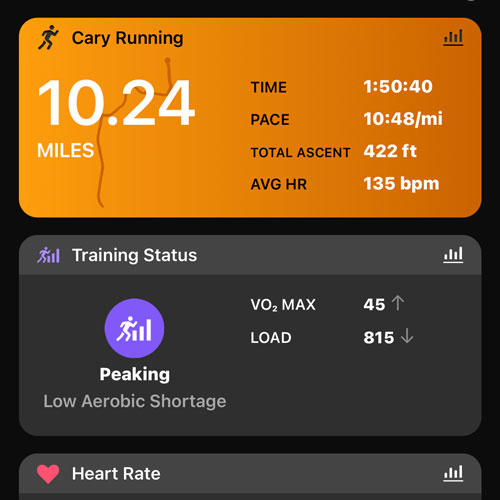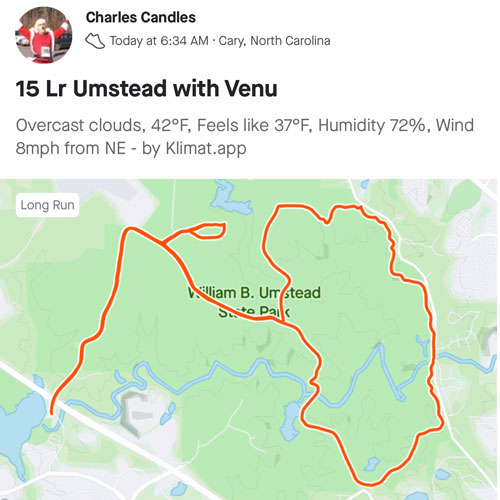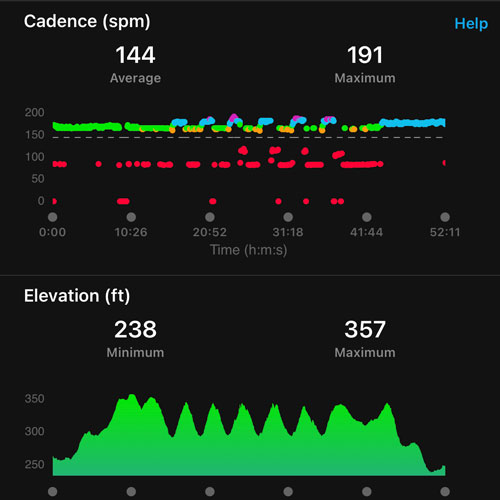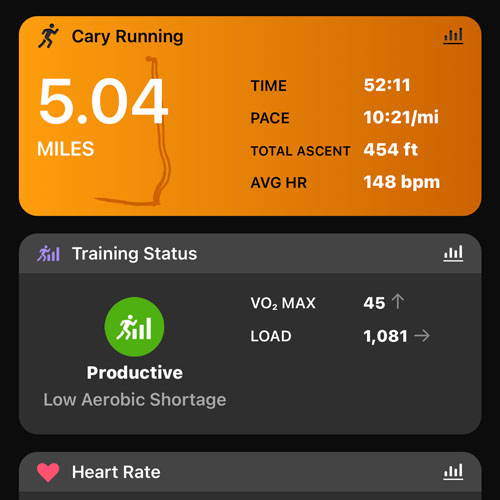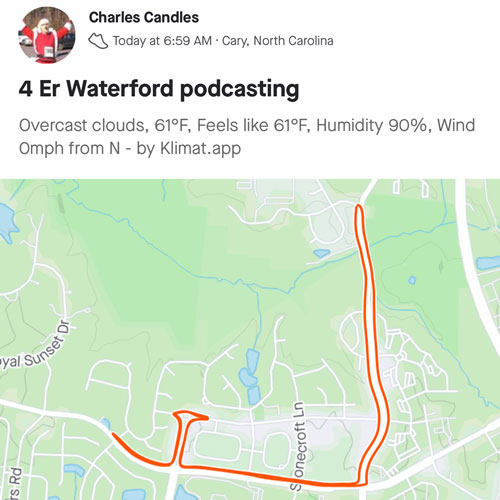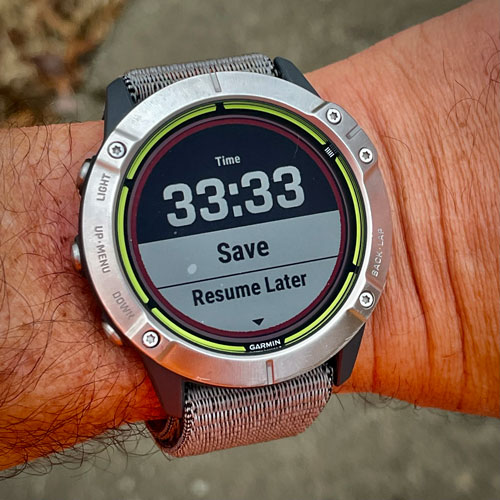Training for 100 miles: Road to 100: Week 12/16 Recovery week
This is part of a series of posts regarding how I am preparing, planning, and train to complete the 100 miles Ultramarathon Umstead 100: Road to 100. For all the ultrarunning series here is Road to 100 last week’s post and for additional ideas follow the link. Training for a 100.
This week is the last recovery week and the prep work for the peak week. The main focus is to start gaining on getting the most recovery possible for the peak and longest back-to-back runs of the training cycle as well as a rehearsal for the upcoming taper weeks. Most of the work and fuel strategy has been tested and processed during training. This is the week to focus on the non-running/training run elements that will help you reach the optimal state. This will also serve as a plan for the upcoming taper weeks, which will provide the necessary recovery to get ready for the 100-mile challenge.
Assessment:
There are a few elements to consider. You will need to use each element based on all the learnings from previous events, races and training sessions including the past few weeks. Recovery is much more than just sitting down doing nothing or taking a nap or being on the couch for the rest of the day. On the contrary, there is still so much to do during the recovery phase of the training. There is no time to waste.
Recovery starts as soon as the end or even just before the end of your run: Consider the last quarter or half-mile of your run as a cool down. Even if you like to push the last mile of your runs or end on a solid high note, make sure you do a slow jog/walk. This will help to get your heart rate a slow down back to resting rate. It will help with getting fluids and clean your muscles out of any of the bi-product from the workout. Also, think about any nagging issue that will require some attention during the recovery stage.
What you put in your body counts: What you eat will be key to facilitating better recovery. Going after junk food and not considering the overall nutrient intake as part of your recovery could drastically hamper getting close to peak performance. Consider the ratio of carbs, proteins, and fat and how it’s going to benefit including the quality of those. Research your body type, activity load, and caloric depletion of workouts take that information into consideration when planning and maneuvering with your food options. Adjust your food intake accordingly.
Hydration: Hydration strategy is not just for pre-race/run or during a run. Think about how you have felt during a run where you were not well dehydrated and how long it took to come out of it. The same goes for your recovery; if you are dehydrated for most of the day after your workouts and run your recovery, it will not be as efficient or as efficient as it could be getting the recovery to a state that will benefit you for the upcoming days.
Sleep/Rest: Everyone knows sleep is key and important. You need to plan your sleep time and quality as well, if not better, than plan your runs.
Mobility for recovery: Mobility is key. If you stay sit without any movement, you are going to feel like your muscle is going to get tight, and you might have a longer period of soreness. The key here is very low exertion effort—a walk and light movement that could include stretching and increased mobility.
It is all about the details: Stick rolling, Foam roller, Percussion gun, warm bath, cold bath, deep tissue massage, massage in general, compression clothing, vitamins, supplements, Tumeric, Tart Cherry, Recovery Roller, Yoga, Stretching session, others. What other things should you consider?
The answers will help you get ready for the next step the planning session.
Planning:
Plan ahead what you are going to do during the cooldown, what routine, stretches, movements are you going to add while your heart rate comes down to closer to your resting rate.
Take a look at what you are eating. Not only pre-run or during a run, but also what is it that you are during the day. If you can have some blood tests done, you can research the few key indicators that might help you identify what is not necessarily working out and or deficiencies you might currently have. You might need some multivitamin supplement, specific vitamin, iron, or electrolytes.
Pay close attention to your caloric intake: your workout will increase your caloric allowance, and although you do not want to consistently over doit or all, always go way below. You want to be conscious of replenishing some of those calories back, especially with good quality calories.
Hydration: Weight yourself before a run to gain a baseline of body weight. Then weight once again after your run. Most of the delta or difference between the two most likely is water weight loss. Consider a plan to replenish that. It would be an equivalent of 16oz for every pound, on top of what you usually drink in the day. Keep in mind that you will need to spread out the intake throughout the day.
Sleep: If you can, wake up in the morning without an alarm you are most likely getting some quality sleep time. Your body will determine the optimal time to wake up based on your needed rest. We all know that is not necessarily always possible for many reasons. If you need to set the alarm, try to go to bed a tad earlier; 15, 30 minutes of gain is better than no minutes at all. Try to increment your start sleep time until you start waking up without the need of an alarm, as your body will help you determine your natural cycle. If you can’t, make sure you make it the best rest/sleep time you can get. Research resources that will allow you to get better sleep. Check the following podcast that covers the topic of sleep.
How is the plan going:
This week was another solid week. The workweek mileage was decent, here are some highlights,
Monday: Minimal strength training, some NCT and Yoga
Tuesday run: NTC (Strenght Training) easy run
Wednesday run: easy recovery pace podcasting run
Thursday run: Some “easy” hills repeats
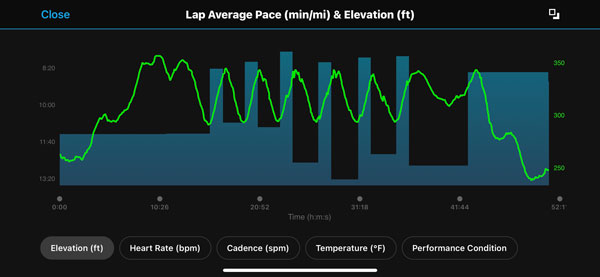
The long recovery runs were good too, Saturday run: Had the opportunity to run with Venu and show him the event route, start/finish area, and where the aid stations were going to be. We discussed a bit about what I would like help with and the things he could talk about, ask me about at key points of the 12.5 miles loop. Very easy pace, I was feeling very energized to the point that we ran the loop a little bit faster than we want it and still felt like an easy pace.
Sunday run: Slept in and went for a super easy run.
This week’s actual numbers:
| Week | Mon | Tue | Wed | Thur | Fri | Sat | Sun | Total | Plan |
| Week 13: | Stretches & Rolling | 6 | 4 | 5 | Stretches & Rolling | 15 | 10 | 40 | 41 |
